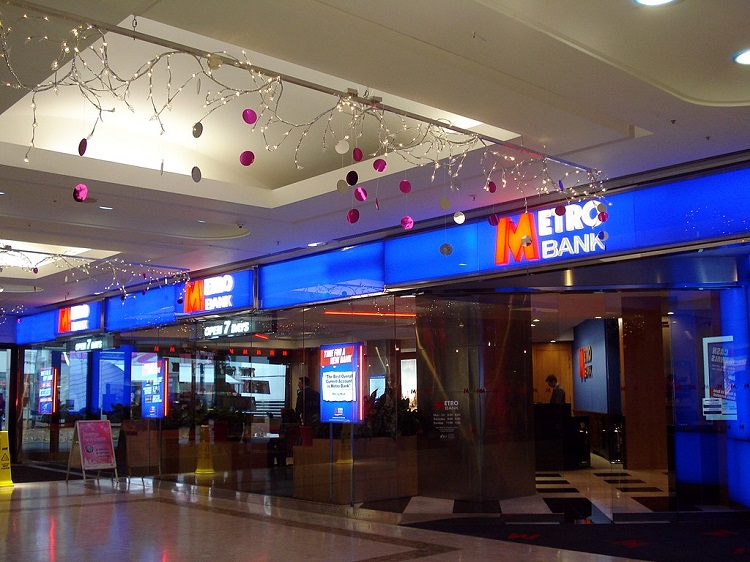
metro bank
On July 26, 2024, Britain’s Metro Bank announced that it had decided to sell its core mortgage division to NatWest Group for £2.4 billion ($3.1 billion). The scholarship, which can generate a maximum of 100,000, is an important step in Metro Bank’s ongoing efforts to reposition its investment portfolio and ensure efficient capital management in a challenging economic environment in.
Strategic marketing implications
Metrobank’s sale of its mortgage division to NatWest is in line with its overall objective of increasing risk-adjusted capital returns. The bank is keen to reduce its risk-weighted assets, and the transaction is expected to significantly reduce these assets by approximately £824 million The move is expected to boost Metro Bank’s common equity Tier 1 (CET1) ratio has improved by about five basis points, indicating a healthier capital position And increasing financial volatility.
The CET1 ratio is an important financial metric for banks, which measures their core equity capital against their total risk-weighted assets. By improving this ratio, Metro Bank aims to strengthen its financial stability and create a stronger hedge against potential bankruptcy. The sale to NatWest is seen as a means to achieve these objectives with a focus on risk management and capital improvements.
The Genesis of Metro Bank
Metro Bank was established in the aftermath of the global financial crisis with the overarching aim of challenging the dominance of the UK’s traditional central banks. The bank aims to offer a new customer-centric approach to banking by differentiating itself through extended branch hours, friendly customer service and innovative digital solutions This initiative initially attracted customers ample, enabling Metrobank to carve out a niche in the competitive UK banking landscape We were .
However, despite its initial success, Metro Bank faced significant challenges, including mounting financial pressures and operational constraints. Since the bank’s ambitious expansion plans and a series of regulatory missteps undermined its financial health, prompting a £925 million rescue last year, Metro Bank has been putting in place cuts and has implemented strategic changes to strengthen its balance sheet and steer it towards sustainable growth.
The Rationale Behind the Sale
Several key factors have driven Metrobank’s decision to sell its mortgage unit to NatWest. One key motivator is the process of repositioning its balance sheet. Metrobank aims to simplify its business by investing in larger rental properties and focusing on its core business of delivering high risk-adjusted returns.
The bank acknowledged that the mortgage being sold stems from a period of low interest rates. As a result, the yield on the fund may not be consistent with Metro Bank’s investment objectives and current market conditions. By selling this portfolio, Metrobank will be able to redirect its capital to opportunities that better align with its strategic vision and deliver improved returns.
In addition, Metrobank is keen to increase its leverage ratios, especially the CET1 ratio. The sale will have a positive impact on these key metrics, strengthening the bank’s adequate capital and providing a strong financial base to face potential economic uncertainties. This strategic approach reflects Metrobank’s commitment to prudent risk management and financial discipline.
Realizing a Loss
Notwithstanding the strategic advantages of the sale, Metro Bank acknowledged a loss of approximately £105 million upon completion of the transaction This loss would result from the difference between the book value of the mortgage segment and between the sale price with NatWest. While this insight presents a financial barrier, Metro Bank sees it as a necessary trade-off to achieve its broader strategic objectives and reposition its capital structure for sustainable growth there forever.
Despite the expected losses, the decision to proceed with the sale underscores Metrobank’s commitment to long-term financial health and structural restructuring. The bank aims to increase its flexibility and agility in the improving economic environment, by divesting non-core assets and improving its capital allocation.
Implications for Metro Bank
Metrobank’s decision to sell its mortgage unit to NatWest has significant implications for its business strategy and future outlook. The transaction marks a pivotal moment in the bank’s efforts to restructure its operations and enhance financial stability.
First, the sale enables Metro Bank to streamline its business model and focus on key areas that align with its strategic priorities. By reducing its reliance on low-yielding assets and optimizing its capital allocation, Metro Bank can position itself to deliver higher returns, deliver higher returns and stay true to its vision there has been around for a long time
Second, the improvement in Metro Bank’s CET1 ratio as a result of the sale strengthens its capital position and provides a buffer against potential liquidity challenges. This increase in adequate capital not only provides the bank with financial flexibility but also its ability to meet regulatory requirements and market uncertainties
Additionally, the sale is consistent with Metro Bank’s commitment to increasing adjusted reserve capital. By rating non-performing assets, the bank can focus on projects that deliver value to shareholders and contribute to sustainable growth.
NatWest’s Strategic Acquisition
For NatWest Group, the acquisition of Metro Bank’s flagship residential mortgage division represents a strategic opportunity to expand its lending portfolio and strengthen its market presence in the UK mortgage sector. The acquisition is in line with NatWest’s growth strategy and positions it to capitalize on synergies and opportunities that may arise from the acquisition.
By adding Metrobank’s mortgage assets to its portfolio, NatWest will be able to enhance its competitive position and leverage its existing strategy to enhance the value of the acquired assets. The transaction will allow NatWest to strengthen its mortgage offering and deliver increased value to its customers and shareholders.
The acquisition of NatWest, Metrobank’s mortgage division is also aligned with its broader strategic objective of achieving sustainable balanced growth The acquisition enables NatWest to diversify its asset positions, optimizing its capital allocation and strengthens its market position in a competitive UK banking environment.
Broader Implications for the UK Banking Sector
Metrobank’s decision to sell its mortgage unit to NatWest highlights a number of broader trends and challenges facing the UK banking sector. The transaction highlights the ongoing dynamics of the industry, characterized by changing market conditions, regulatory pressure and regulatory restructuring
A key implication in this context is the emphasis on investment efficiency and risk management in the banking sector. In an environment marked by economic uncertainty and changing regulatory requirements, banks are increasingly focused on growing their capital and ensuring prudent risk management
Additionally, the sale reflects competitive pressure from smaller bank challengers such as Metro Bank. As the UK banking environment continues to evolve, banks must adapt to changing market dynamics and identify opportunities to act to maintain their competitiveness and financial stability
Furthermore, the article highlights the importance of collaboration and collaboration in the banking sector. By leveraging synergies and optimizing asset management, banks can increase their market position and deliver value to customers and shareholders.
Challenges and Future Outlook
While the sale of Metrobank’s mortgage division to NatWest represents a strategic move towards financial recovery, the bank is facing several challenges as it navigates the ongoing economic climate
Maintaining customer trust and loyalty is a key challenge. As a challenger bank that initially disrupted the market with its customer-centric approach, Metro Bank must continue to offer innovative solutions and exceptional service to retain its customers amid increased competition from players who celebrities and fintechs there.
In addition, Metro Bank must manage its capital allocation and operational efficiency effectively to achieve sustainable growth. A bank’s ability to optimize its existing assets, perform efficiently and seize growth opportunities will be critical to long-term success in a competitive market.
In addition, Metro Bank must comply with regulatory requirements and ensure compliance with changing industry standards. The banking industry is under intense regulatory scrutiny, and Metro Bank must maintain a robust compliance program to mitigate potential risks and protect its reputation
Looking ahead, Metrobank’s strategic focus on repositioning its capital structure and increasing its risk-based return on capital will be key to its victory in the future. The Bank’s ability to develop strategic plans, execute its business effectively and deliver value to its stakeholders will determine its flexibility and competitiveness in the dynamic UK banking environment.
Conclusion
The sale of Metrobank’s flagship residential mortgage division to NatWest represents a significant strategic move aimed at repositioning the bank’s balance sheet and increasing its financial stability. Although the transaction involves a loss, Metro Bank sees it as a necessary step toward achieving its broader strategic objectives and optimizing capital gains
For NatWest, the acquisition provides an opportunity to expand its mortgage offering and strengthen its market position in a competitive UK banking sector. The business is in line with NatWest’s growth strategy and provides customers and shareholders with transactional benefits and increased value.
As the UK banking sector continues to evolve, banks need to be nimble and responsive to changing market dynamics and regulatory requirements. Metrobank’s strategic realignment emphasizes the importance of prudent risk management, capital management and customer-centric approaches to achieve sustainable and resilient growth in the financial sector.
In conclusion, the sale of Metrobank’s mortgage division to NatWest reflects the ongoing changes and challenges in the UK banking industry. As banks navigate an increasingly complex environment, implementing strategic initiatives that improve financial stability, operational efficiency and customer confidence will be critical to their success in an ever-changing financial system.



